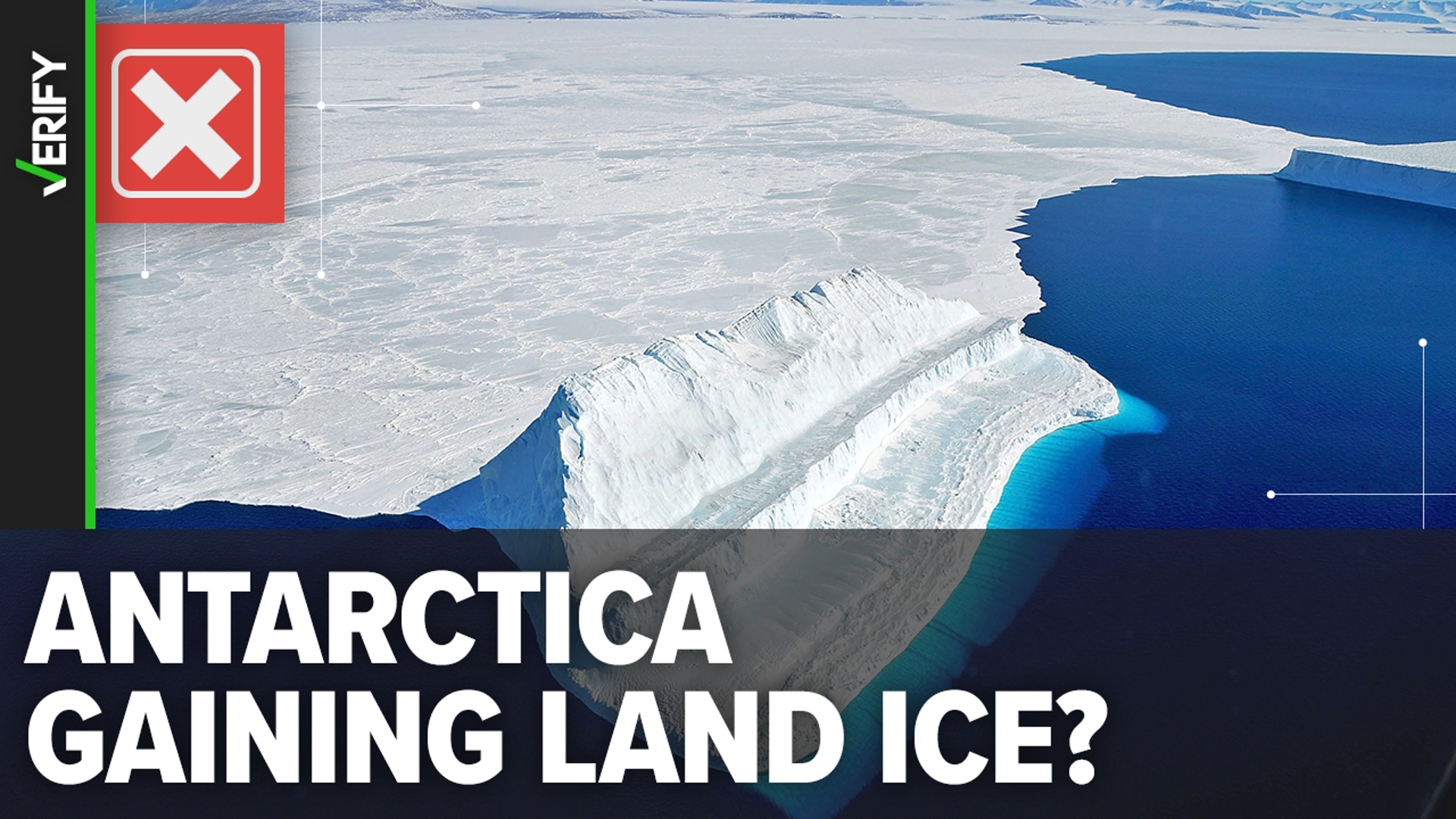Antarctica is the fifth largest continent in the world, and it’s nearly completely covered by ice. Due to global warming, ice is melting rapidly in parts of the continent, according to a 2023 study.
But some social media users and others online claim the continent’s ice is growing instead of melting away.
“[Ice] is expanding in much of Antarctica, contrary to the widespread public belief that global warming is melting the continental ice cap,” one article says.
But is that true?
THE QUESTION
Is Antarctica gaining land ice?
THE SOURCES
- NASA
- My NASA Data
- A study published in Nature, an international peer-reviewed scientific journal
THE ANSWER
No, Antarctica is not gaining land ice.
WHAT WE FOUND
Contrary to viral claims, Antarctica is not gaining land ice. While Antarctic sea ice varies seasonally, the continent’s land ice has continued to melt at an increasing pace, according to NASA and a 2018 study by the IMBIE team, an international collaboration of polar scientists.
Antarctic land ice is the ice that has accumulated over thousands of years on the Antarctica landmass through snowfall. This land ice is actually stored ocean water that once evaporated and then fell as precipitation on the land.
Meanwhile, NASA says that sea ice forms during the Antarctic winter and retreats during the warmer months. Such freeze-thaw cycles have no impact on sea levels since they happen within the ocean. But Antarctic land ice has seen a net decrease, resulting in a significant increase in freshwater flowing into the sea. That does affect global sea levels.
The behavior of Antarctic land ice varies from region to region, according to an analysis of the mass balance of the Antarctic Ice Sheet from 1992 to 2017. In particular, the West Antarctic Peninsula has seen drastic ice retreat. On the other hand, East Antarctica’s land ice has remained relatively stable to date.
But if global warming crosses a specific threshold, serious loss is expected to occur in Antarctica. The planet has already moved a third of the way towards that threshold and will pass it within a century if fossil fuel burning continues.
This story was reported in collaboration with Skeptical Science, a member of the Gigafact network, and was originally reported by Sue Bin Park.

